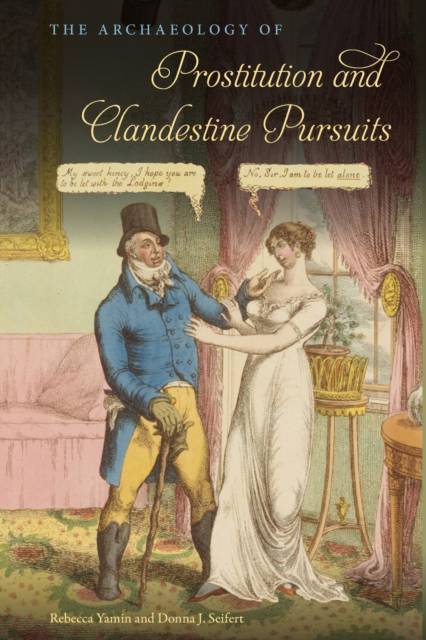
Bedankt voor het vertrouwen het afgelopen jaar! Om jou te bedanken bieden we GRATIS verzending (in België) aan op alles gedurende de hele maand januari.
- Afhalen na 1 uur in een winkel met voorraad
- In januari gratis thuislevering in België
- Ruim aanbod met 7 miljoen producten
Bedankt voor het vertrouwen het afgelopen jaar! Om jou te bedanken bieden we GRATIS verzending (in België) aan op alles gedurende de hele maand januari.
- Afhalen na 1 uur in een winkel met voorraad
- In januari gratis thuislevering in België
- Ruim aanbod met 7 miljoen producten
Zoeken
€ 38,95
+ 77 punten
Uitvoering
Omschrijving
Case studies of nineteenth-century sites from New York City to the American WestThe Archaeology of Prostitution and Clandestine Pursuits synthesizes case studies from various nineteenth-century sites where material culture reveals evidence of prostitution, including a brothel in Five Points--New York City's most notorious neighborhood--and parlor houses a few blocks from the White House and Capitol Hill. Rebecca Yamin and Donna Seifert also examine brothels in the American West--in urban Los Angeles and in frontier sites and mining camps in Sandpoint, Idaho; Prescott, Arizona; and Fargo, North Dakota. The artifact assemblages found at these sites often contradict written records, allowing archaeologists to construct a more realistic and complicated picture of daily life for working-class women involved in commercial sex. Recognizing the agency involved in practicing a profession that has never been considered respectable, even when it wasn't outright illegal, Yamin and Seifert also look at the agency of other individuals who participated in illicit activities, defying society privately or even publicly. The authors demonstrate the various ways disempowered groups including immigrants, African Americans, women, and the poor wielded autonomy while constrained by cultural norms. They also consider similar, contemporary expressions of agency, with particular attention to ongoing arguments surrounding the legalization of prostitution. Juxtaposing today's debates alongside the clandestine pursuits of the past reveals how dominant moral standards determine what individual choices are publicly permissible. A volume in the series the American Experience in Archaeological Perspective, edited by Michael S. Nassaney Publication of the paperback edition made possible by a Sustaining the Humanities through the American Rescue Plan grant from the National Endowment for the Humanities.
Specificaties
Betrokkenen
- Auteur(s):
- Uitgeverij:
Inhoud
- Aantal bladzijden:
- 204
- Taal:
- Engels
- Reeks:
Eigenschappen
- Productcode (EAN):
- 9780813080017
- Verschijningsdatum:
- 3/01/2023
- Uitvoering:
- Paperback
- Formaat:
- Trade paperback (VS)
- Afmetingen:
- 152 mm x 229 mm
- Gewicht:
- 281 g

Alleen bij Standaard Boekhandel
+ 77 punten op je klantenkaart van Standaard Boekhandel
Beoordelingen
We publiceren alleen reviews die voldoen aan de voorwaarden voor reviews. Bekijk onze voorwaarden voor reviews.









